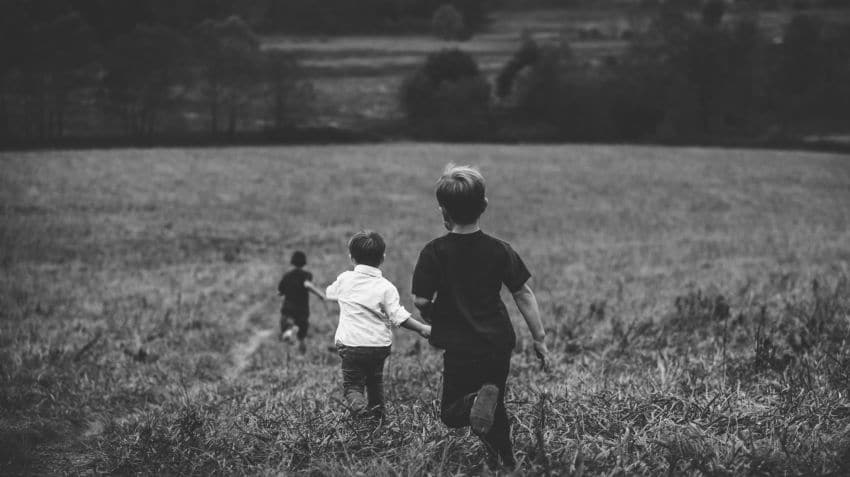My Vision for My Students
 Image by Jordan Whitt on Unsplash
Samuel shares a plethora ideas for emotionally and intellectually healthy activities for upper elementary students.
Image by Jordan Whitt on Unsplash
Samuel shares a plethora ideas for emotionally and intellectually healthy activities for upper elementary students.
Now that school is over for the year and summer lies ahead, my students have tremendous opportunities before them. What will they do with themselves this summer? Getting more sleep, sleeping in, playing outside, baking cookies, helping Dad with some projects, getting together with friends—these are all things they might be anticipating.
One time Pooh and his friends went on an expedition to look for the North Pole. None of them, of course, knew what the North Pole actually was. They ended up finding something that they thought was the North Pole, but it actually was not. Often when we look to what lies ahead, we have only a vague impression of what we hope to find. Summer can feel like an endless possibility, but we don’t have a clear idea of what we hope to do with our summer. Heading into summer without clear direction is a bit like trying to steer a ship without a compass through a foggy sea. Without a goal in sight, we randomly hit whatever comes along.
In the following paragraphs, I present to my students my vision for their summer. I write it in the present tense, not in an effort to predict the future, but to make the vision more accessible and compelling.
My students eagerly anticipate their summer vacation, and they have some definite goals for themselves to accomplish before the beginning of the next school term. They are forward thinkers. They don’t passively wait for things to come their way. They understand that if they aim for nothing, they will hit nothing. They want to make the most of the several months that lie ahead.
My students are helpful people who contribute to the lives of those around them. They are thinking of ways they can be of help to Mom and Dad. They actively do what they can around the house, even before they’re asked to. They don’t always feel like taking out the trash or doing the laundry or cleaning out the garage, but they still do it cheerfully. Sometimes they surprise their family by doing something extra, such as washing the car or cleaning out the dog kennel.
My students exercise self-discipline. Sleep is a delightful, wonderful, sweet thing, but my students realize that sleeping too much can dull their senses like too much sugar can make them sluggish. They have developed their self-discipline so that they get up early without needing their parents to wake them. Their morning schedule looks something like this. They get up around 7:00 – 7:30 and tidy their bed. They spend approximately thirty minutes doing exercises similar to what they learned in Health this year. After exercising, they take a shower, read their Bible or some other inspirational book, and eat breakfast. If their parents prescribe something different, they willingly do as their parents ask. Whatever their morning schedule is, they consistently get up on their own and follow a set plan of action.
My students make good use of their time. Much of the typical day is likely planned and dictated by their parents, but my students do have a significant amount of time for their own plans. They don’t need to plan every minute of it; but they do have specific goals they want to accomplish, which means that that they are intentional about how they spend their time.
My students read. They read some for entertainment, but they also read thicker stuff that makes them think. They take great delight in learning from books. They spend very little time in front of a screen, because they know that watching things on a screen (even if it’s a video game) has a negative impact on their brain. Instead of watching videos and playing video games, they stick their nose into a good book regularly and frequently.
My students write. Most days they keep at least a short diary of what they did and learned that day. They write down things that they notice. Periodically they write letters to friends and grandparents. A few exceptionally ambitious ones even write stories from time to time.
My students make things. They use their imagination and creativity to make some really neat and functional stuff. When making things calls for measuring and calculating, they either do the math in their heads or on paper; they rarely use a computerized calculator. The following is a list of ideas:
- Building a birdhouse or bird feeder
- Crafting model vehicles such as cars, boats, or airplanes out of wood, cardboard, etc.
- Making a doghouse
- Practicing cooking and baking skills – perhaps making a meal or part of one
- Making a trebuchet
- Building a fire without matches or a torch of any kind
- Building a teepee or some other shelter and spending the night in it
- Starting a collection
- Rocks
- Insects
- Minerals
- Feathers
- Etc
- Making a bookshelf
- Building a windmill
- Learning how to crochet and/or sew
- Building a generator out of an old electric motor and a bicycle
- Making a handbag or purse out of leather
- Making a journal or sketchbook, using Coptic stitching
- Building picture frames
- Making a roadside stand from which to sell homemade cookies and lemonade
- Making trails in the woods
- Building a “house” among the trees – making little trails, outlining rooms with rocks, etc.
- Growing flowers and/or vegetables
My students share what they learn. While they’re working with Mom in the kitchen, helping Dad with a project, or eating together at the supper table, they ask their family members what they are learning; and they share their own discoveries and observations.
My students thoroughly enjoy their summer vacation. They lie on their backs with a hat to shield their eyes as they watch puffy clouds and imagine dragons and lions. Sometimes they camp out under the stars, where the crickets serenade them to sleep. Evenings after the sun has set on a clear, hot day, they sprawl out on the warm grass and breathe in its languid freshness. They watch beautiful sunsets and appreciate God’s thoughtfully prepared masterpieces.
I could further develop my vision for my students, but I want them to think for themselves, too.
God has blessed them with wonderful minds with which to develop their own plans and ideas.
The summer lies ahead. The possibilities seem endless. But summer won’t last forever.

Leave a Reply